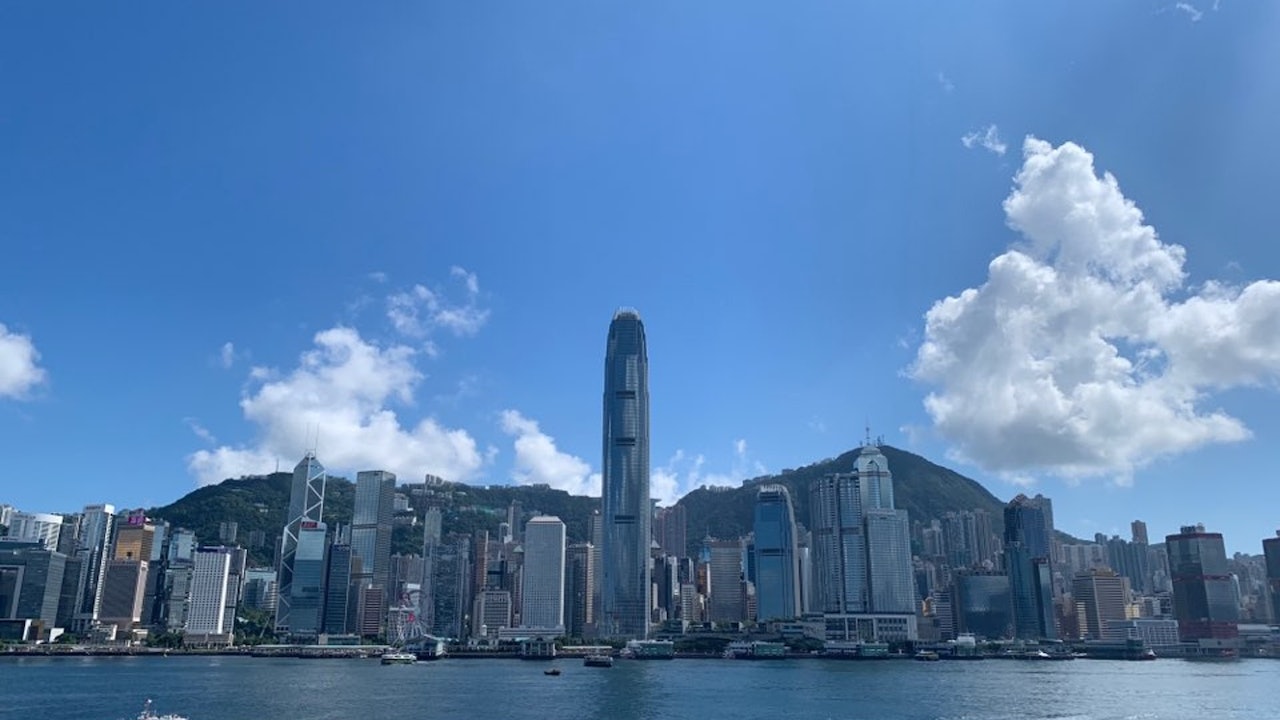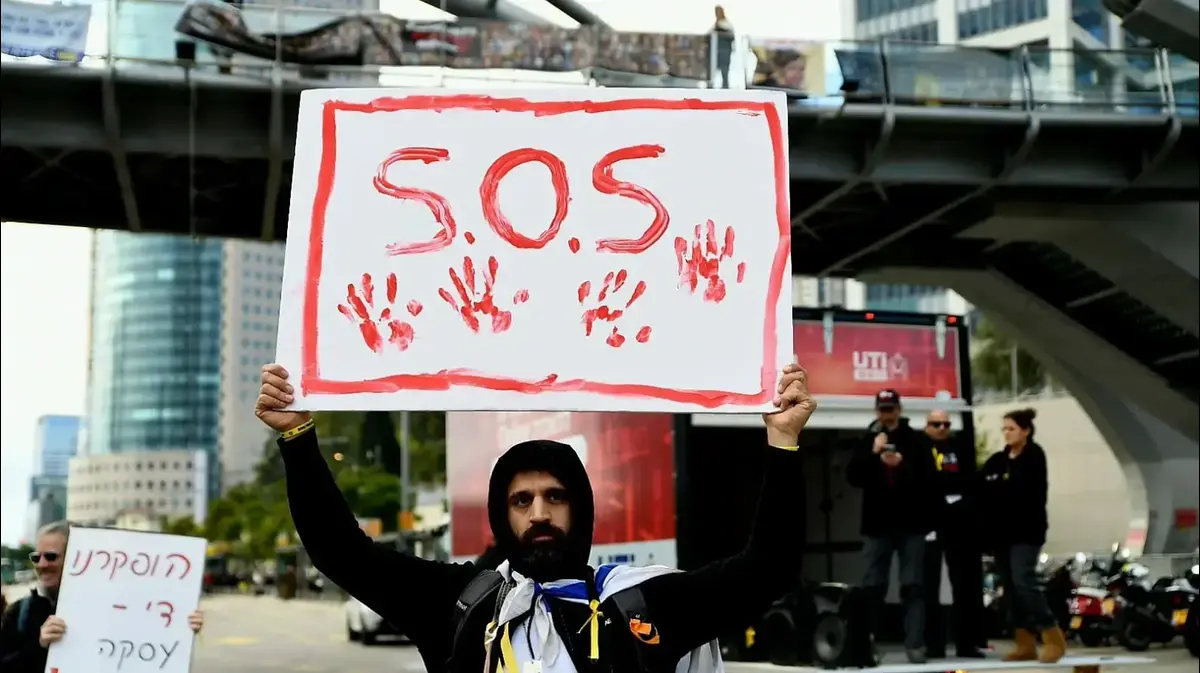Xi Jinping, General Secretary of the Communist Party of China, mentioned in the "20th National Congress Report": "Support Hong Kong and Macau to develop the economy, improve people's livelihood, and solve the deep-seated contradictions and problems in economic and social development." What is said, but the words are different, there is no unified statement.
"Hong Kong 01" raised two questions to the Chief Executive's Office, various policy bureaux and members of the Legislative Council on the content of Xi Jinping's speech above, namely, how to understand the "deep-seated contradictions" in Hong Kong and how to counteract them.
Neither the Chief Executive's Office nor the Policy Bureau responded, and Members' responses came from different angles, showing that the political sector has different understandings of this issue. There are four main categories. The following Members will focus on social conflicts in economic development.
Lin Xiaolu.
(File photo/Photo by Yu Junliang)
Lin Xiaolu: The tension between interests and ideas in development
Lin Xiaolu believes that the biggest contradiction is the tension and opposition between interests and ideas in the process of urban development.
He said that urban development will inevitably change the status quo of land. If we always emphasize conservation or insist on neither relocation nor demolition, we will never be able to solve the problem of insufficient land and housing.
In the face of such problems, Lin Xiaolu believes that it is necessary to have an overall view.
He mentioned that in the "20th National Congress Report", it is necessary to "completely, accurately and comprehensively implement the new development concept, focus on promoting high-quality development, and actively build a new development pattern", and Hong Kong's development pattern cannot be separated from further reform and opening up. More emphasis should be placed on technological innovation, common prosperity and environmental protection.
He pointed out that when the government considers any plan, it must take into account the public sentiment and take the initiative to solve problems.
Hong Wen.
(file picture)
Hong Wen listed three social and economic contradictions to promote industrial structure diversification
Hong Wen listed three deep-seated contradictions, namely, the simplification and hollowing of the economic structure, the wealth-driven development model, and the poor getting poorer and the rich getting richer.
She believes that the direction to be solved is to promote the diversification and substantiation of the local industrial structure, so as to create more high-quality jobs and narrow the poverty gap.
Chen Shaoxiong.
(file picture)
Chen Shaoxiong: The government does not take refuge when it matters, and has the courage to tear down the walls and loosen the bonds
Chen Shaoxiong believes that deep-seated conflicts are problems and obstacles that Hong Kong has encountered in the process of development and which are difficult to resolve in the short term.
For example, the shortage of land, the long waiting time for public housing, the price of private housing far exceeding the purchasing power of the public, the single industrial structure, the lack of development momentum, the difficulties of young people, and the lack of understanding of the country by some Hong Kong people and the weak concept of the country.
He said that the government must use a positive attitude of not taking refuge and facing difficulties, and the innovative thinking of having the courage to tear down walls and loosen bonds, to deal with contradictions and problems that were not dared before, especially housing, medical care, education, etc. Adagio".
Taking land and housing as an example, he needs to solve the problem by streamlining the approval process and accelerating the speed of land development.
It was also mentioned that the "Policy Address" established 100 indicators to enable the public to monitor the government's progress.
Guo Lingli.
(File photo/Photo by Ou Jiale)
Guo Lingli: Long-term policies should be evaluated and prepared at different stages
Guo Lingli said that the unique historical development of Hong Kong in the past has created deep-seated contradictions in today's society, and the development of Hong Kong in the past has not kept pace with the times.
For example, she pointed out that the lack of diversification in the development of the industry has not only restricted the economic development of Hong Kong, but also restricted the opportunities for the grassroots to move up.
She said that the promotion of innovation and technology mentioned in the "20th National Congress of the Communist Party of China" report is exactly the way to create multiple ways for Hong Kong's economic development.
Guo Lingli mentioned that in Xi Jinping's July 1 speech, the biggest people's sentiment in Hong Kong is to hope for more spacious houses, more business opportunities, better education, and better care for the elderly. The "Policy Address" has many related policies, but long-term solutions Problems need to be assessed at different stages, and policy preparations should be made as early as possible.
Guo Lingli also emphasized that all sectors of the community and the government should work together. In addition to strengthening the centripetal force of civil servants, the biggest problem is the orientation of the people.
She believes that it is necessary to strengthen national education at the social level, strengthen exchanges between the two places, and strengthen the spread of Chinese 5,000-year-old culture and traditional Chinese moral values. She believes that it can enhance the public's sense of pride in being "Chinese".
As long as the people's hearts and minds are fully restored, the citizens will work together to build Hong Kong, and civil servants will know what "serving the people" is.
Yang Yongjie.
(File photo/Photo by Xia Jialang)
Yang Yongjie: Grassroots citizens cannot share the fruits of economic development
Yang Yongjie pointed out that social contradictions will inevitably arise in the process of social development. The main problem facing Hong Kong is the unbalanced economic development, so that grassroots citizens cannot share the fruits of economic development. There is a gap, which has evolved into various contradictions in society, such as the disparity between the rich and the poor.
The "Policy Address" proposes a number of measures. Yang Yongjie believes that the government should be committed to solving the housing problems faced by Hong Kong citizens. Not only should the speed, quantity, efficiency and quality be improved, but the government should not rush to solve the problem, but must implement it thoroughly. Understand the problem and the situation faced by the public, balance the interests of all parties and strengthen communication, and then formulate a plan that meets the expectations of the public.
Yang Yongjie also pointed out that while the government decided to use innovation and technology to drive the further development of the economy, some citizens must have been marginalized because they failed to catch up with social evolution.
Chen Xuefeng.
(File photo/Photo by Huang Baoying)
Chen Xuefeng: Develop a capitalist system with Hong Kong characteristics, government-led medical, food, housing and transportation
Chen Xuefeng pointed out that under the capitalist system, the government emphasizes "active non-intervention" and "small government, big market". Although it is conducive to the inflow of international capital, it also makes it difficult for the economic industry to be single, upward mobility of young people, difficult to buy a property, and a huge gap between the rich and the poor. Level contradictions.
He believes that while maintaining the capitalist system, it is also necessary to break down the barriers of solidified interests and reform Hong Kong's political and economic structure.
Chen Xuefeng believes that the solution is to build a "capitalist system with Hong Kong characteristics". The key point is to solve the current situation of uneven distribution, the poor are getting poorer, and the rich are getting richer. In terms of "medical care, food, housing, and transportation", the market can no longer be dominated. , the government must do something.
Chen Kaixin.
(File photo/Photo by Liang Pengwei)
Chen Kaixin: Involving different interests, there is great resistance to government reform
Chen Kaixin believes that deep-seated contradictions are caused by complex causes that have not been resolved for a long time, and have accumulated into huge social problems. resistance.
Chen Kaixin took medical care as an example. To solve deep-seated conflicts will involve huge public funds, medical personnel and the interests of professional organizations.
She pointed out that since the establishment of the Hospital Authority in Hong Kong in 1990, there has not been any major breakthrough or change in the medical system. More than 30 years ago, it was predicted that with the advancement of medical technology, the aging population, the shortage of medical personnel, and the serious imbalance between the public and the private sector, local medical services will continue to grow in the long run. The quality is bound to be difficult to maintain, and the government has to make financing plans for the huge medical expenditure in the future.
Chen Kaixin pointed out that there are three contradictions in the medical system. One is medical financing. The government has been subsidizing 90% of medical expenses, and the expenditure has continued to rise. It is difficult to maintain in the long run. Opposing tax hikes to offset government medical expenses, and opposing compulsory medical insurance, the financing plan adopted "voluntary medical insurance", which was not very effective, and could not solve the problem.
The second is the shortage of medical staff, but whenever there is a discussion about increasing the number of staff, there will be objections from the professional circles, and the problem of insufficient medical staff cannot be solved, and the short-term problem is even more serious.
The third is that Chinese and Western medicine cannot cooperate. Although three local universities have a bachelor's degree in Chinese medicine, Chinese medicine has not been introduced into the local medical system. At present, only 8 public hospitals provide Chinese and Western medicine collaborative treatment services.
Chen Kaixin pointed out that traditional Chinese medicine has remarkable curative effect in many aspects and should play a greater role.
Topic ︱Deep-level contradictions Speaker Renshu's interpretation of the topic in four directions Promote sense of belonging, upward flow, housing and land








